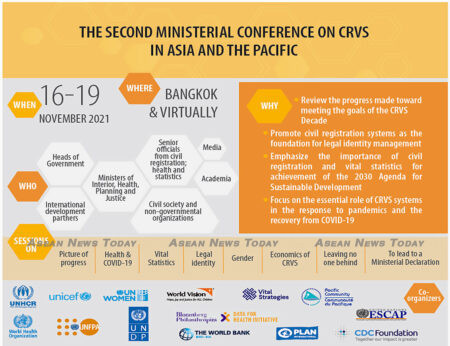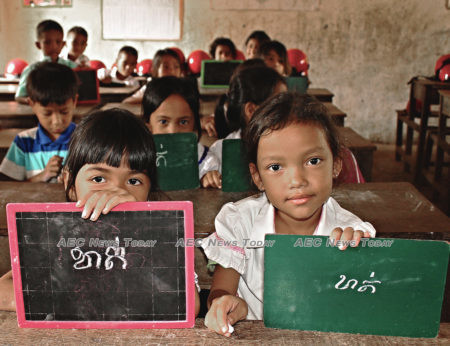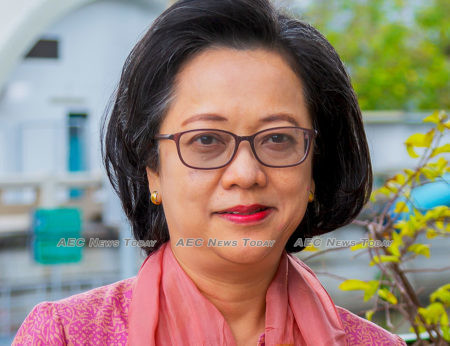Most countries in the Asia-Pacific region are on track to reach universal birth registration by 2030: an incredible achievement and a significant milestone in realizing human rights and equality. However, as the COVID-19 pandemic has exposed, many weaknesses remain in official recording systems, creating gaps in knowledge about the population and affecting how authorities respond to crises and reach those in greatest need.

Civil registration and vital statistics (CRVS) systems record births and other key life events such as deaths and marriages.
Birth registration is fundamental for accessing a wide range of social services, benefits and rights. It provides an individual with a legal identity and a proof of age, which are often requirements to enrol in school, receive healthcare, apply for formal work, register to vote, inherit property, obtain a passport and social protection, or open a bank account.
And often it is the hard-to-reach and marginalized populations that are least likely to receive official documentation, including those living in rural, remote, isolated or border areas; minorities; indigenous persons; migrants; non-citizens; asylum-seekers; refugees and people who are stateless or of undetermined nationality.
As regional leaders gather this week for the 2nd Ministerial Conference on Civil Registration and Vital Statistics in Asia and the Pacific, the focus will be on regional and country-level achievements, and the obstacles and challenges in realizing the shared commitment that all people in the region will benefit from universal and responsive CRVS systems by 2024.
The Conference marks the midpoint of the Asia-Pacific CRVS Decade (2015-2024) and is an important milestone in the pursuit of creating national CRVS systems that are universal and responsive to the needs of entire populations.
70 mln additional children have benefited
Since 2014, more than 70 million additional children in the region have greater access to education, health and social protection because their birth has been officially recorded and recognized through the issuance of a birth certificate.

This is a notable achievement and testament to the resolve and commitment of governments to the shared goals made in 2014, the strength of regional cooperation, and the support of 13 development partners, including the United Nations Economic and Social Commission for Asia and the Pacific (ESCAP) and United Nations High Commissioner for Refugees (UNHCR), the UN Refugee Agency.
Still, there is work to do. Robust and universal marriage registration systems are needed to prevent girls from being coerced into early marriage, which often threatens their lives and health.
The region also has an opportunity to reduce the risk of statelessness and human trafficking, as well as to promote solutions for refugees and asylum seekers by documenting links to the country of origin.
UNHCR’s work with national governments to strengthen and broaden civil registration systems to formally register people considered stateless or of undetermined nationality has led to profound policy changes across Central Asia and the legal recognition of every birth, irrespective of parents’ status.
Furthermore, as we have witnessed during the global pandemic, when civil registration systems fail to reach everyone in the country and not everyone is counted, a public health crisis intensifies.
Bold and ambitious outcomes required

Whereas robust CRVS systems enable governments and health authorities to track the pandemic and respond quickly and in an informed manner, a poorly functioning civil registration system masks the true impact of a crisis: deaths go uncounted — especially among the poorest and most vulnerable — and individuals are unable to access humanitarian relief or benefit from financial stimulus measures and, more recently, national vaccination programmes.
Governments that are unable to account for the entire population face barriers to creating and implementing effective public policy and responding to a crisis in an equitable manner.
A comprehensive approach to civil registration, with timely and accurate data that are put to the right use, has the power to benefit every individual and inform public policy simultaneously, including by reducing statelessness across the region.
Leaving no one behind through universal birth and death registration demands bold and ambitious outcomes from the upcoming ministerial conference. We have the knowledge, experience and technical ability to create registration systems that are responsive to the needs of the population and can guide us through current and future challenges.
Note: The 2nd Ministerial Conference on Civil Registration and Vital Statistics in Asia and the Pacific will take place at UN-ESCAP, Bangkok, between November 16 and 19.
This article was written by Armida Salsiah Alisjahbana, Executive Secretary of UN-ESCAP, and Gillian Triggs, Assistant High Commissioner for Protection, UNHCR
Feature video IDRC | CRDI
Related:
- The case for data: How CRVS systems can help improve gender equity (devex)
- Civil registration and vital statistics systems (IDRC:CRDI)
Made up of 53 Member States and nine Associate Members, the region is home to 4.1 billion people, or two thirds of the world’s population.
ESCAP works to overcome some of the region’s greatest challenges by providing results oriented projects, technical assistance and capacity building to member States
Latest posts by United Nations Escap (see all)
- Ocean action needed now by Asia and Pacific countries – June 27, 2022
- Pandemic pushes Asia & Pacific Sustainable Development Goals further out of reach – March 17, 2022
- A new transport agenda to carry Asia and the Pacific towards sustainable development – December 14, 2021
- Bold and ambitious outcomes in civil registration needed to ensure no one left behind (video) – November 15, 2021

